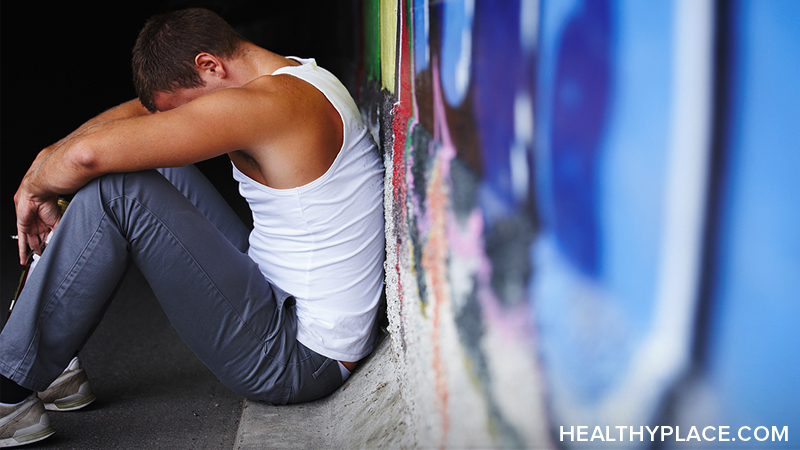Teenage Depression-Signs, Symptoms, Antidepressants

Teenage depression is more common than once thought. Estimates show 4.7% of adolescents are experiencing depression at any given time. While depression in teenagers is very similar to that of adults, teens have particular challenges involving school, family, peer pressure and bullying that can make managing depression more difficult.
It can be difficult to tell if a teen's behavior is normal moodiness or signs of teenage depression. If a teen cannot deal with their emotions or if the symptoms persist and start to interfere with life-functioning, it's time to consider teenage depression as a possibility. (teenage depression test here)
Signs and Symptoms of Teenage Depression
Signs and symptoms of teenage depression are similar to that of adults (read: Depression Symptoms). The latest version of the Diagnostic and Statistical Manual of Mental Disorders (DSM-IV-TR) lists only one difference between teen and adult depression: teens may have an irritable mood rather than a depressed one. Other symptoms of teenage depression include:1
- Diminishing ability to feel pleasure; disinterest in hobbies
- Sleeping and eating changes
- Agitation, restlessness, anger, irritation
- Slowed thinking, speaking and movements
- Fatigue, tiredness
- Feelings of worthlessness, guilt
- Trouble thinking, concentrating, remembering
- Frequent thoughts of death, dying or suicide
- Crying spells
- Unexplained physical pain
- Disruptive behavior; often seen in males
- Preoccupation with body image, performance; perfectionism; often seen in females
Depression in teenagers often occurs alongside other mental disorders like attention-deficit/hyperactivity disorder (ADHD), eating disorders or an anxiety disorder.
Teenagers and Antidepressants
Teenage depression is often treated by addressing the environmental and psychological factors of the depression. These issues may be handled by a school counselor or in therapy. However, in some cases, often with severe or reoccurring episodes of depression, antidepressants may be prescribed for teenagers.
The Food and Drug Administration (FDA) warns that antidepressants can increase suicidal thoughts and behaviors, particularly during initial treatment so an adult should always closely monitor any teenager's depression treatment. Adults may wish to ensure the medication schedule is followed exactly so the teen does not hoard medication in a later attempt to commit suicide.
Few antidepressants have been studied and approved for use in teenagers, but antidepressants are used based on approval, research data or their use in the adult population. All types of antidepressants can be used in teenagers but selective serotonin reuptake inhibitors (SSRIs) are commonly prescribed first (see list of antidepressants). Antidepressants typically used in teenagers include:
- Fluoxetine (Prozac)
- Paroxetine (Paxil)
- Citalopram (Celexa)
- Escitalopram (Lexapro)
APA Reference
Tracy, N.
(2022, January 3). Teenage Depression-Signs, Symptoms, Antidepressants, HealthyPlace. Retrieved
on 2026, February 28 from https://www.healthyplace.com/depression/children/teenage-depression-signs-symptoms-antidepressants


